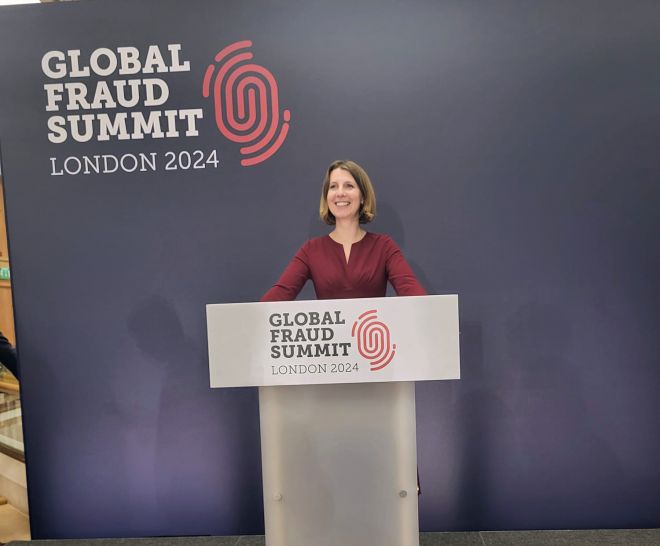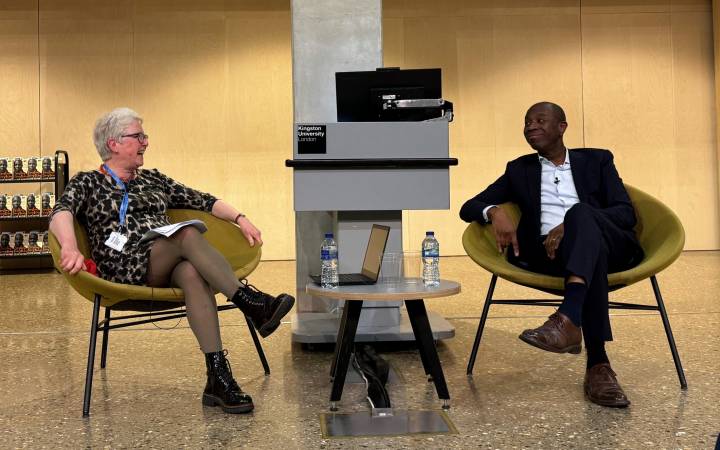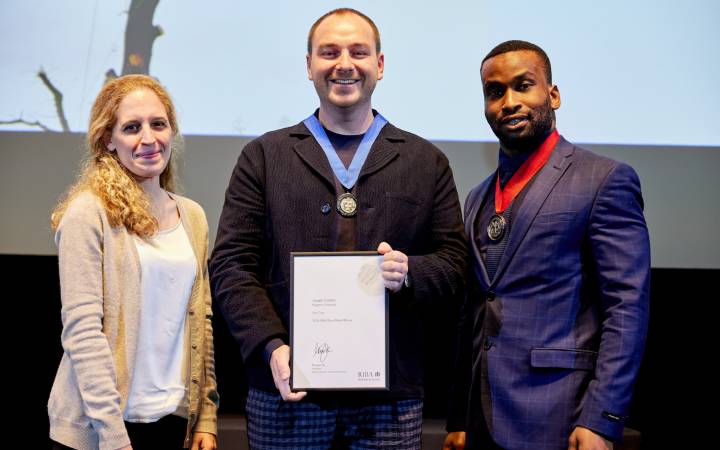Kingston University academic lends expertise to INTERPOL in campaign to combat online relationship and investment frauds
Posted Friday 20 December 2024
 Dr Lis Carter supported Interpol in developing the alternative term, utilising her vast array of research expertise in the area. Photo by Glenn Carstens-Peters on Unsplash
Dr Lis Carter supported Interpol in developing the alternative term, utilising her vast array of research expertise in the area. Photo by Glenn Carstens-Peters on Unsplash
A Kingston University academic has assisted Interpol in a campaign focussing on the language used to describe online fraud. INTERPOL is calling for a shift in language, advocating for the term romance baiting to replace the widely used but stigmatising term pig butchering.
Dr Elisabeth Carter supported Interpol in developing the alternative term, utilising her vast array of research expertise in the area. Over several months she supported the international police organisation in considering a number of factors including the need for the term to be media-accessible, more accurately represent the crime, and crucially, be recognisable by the public while avoiding dehumanising victims.
The term comes from fraudsters referring to their victims as pigs – those they gradually fatten up by luring them into a fake romance or friendship before butchering them by convincing them to invest, often in fake cryptocurrency schemes. Once victims invest significant sums of money, they are manipulated further or abruptly cut off, often leaving them with devastating financial losses as well as psychological harm.
The connection between INTERPOL and Dr Carter came about following the inaugural Global Fraud Summit at which Dr Carter spoke about her research exposing the perils of careless use of language in fraud communications and public protections.
 Dr Elisabeth Carter at the Global Fraud Summit in London.
Dr Elisabeth Carter at the Global Fraud Summit in London.
Dr Carter explained it is crucial that academic research underpins campaigns such as these, as it provides evidence-based guidance and strategies that ensure the public are protected from secondary victimisation and societal harm that can occur through the use of anecdotal and non-evidence based communications and slogans. "Fraud is an issue of national security, and to actually protect of the public from its harms it must not be done with guesswork, driven by catchy slogans, or approached like an ordinary marketing strategy," she said.
The aim of the campaign is to improve the effectiveness of public protection, changing negative narratives of fraud victimhood, and encouraging reporting to gain an accurate picture of the crime, deliver justice to victims and ensure they are provided the support they need.
INTERPOL argues the term pig butchering dehumanises and shames victims of such frauds, deterring people from coming forward to seek help and provide information to the authorities. In contrast, the term romance baiting – which is already used by some law enforcement agencies and online safety experts – acknowledges the sophisticated tactics and emotional manipulation used by fraudsters to build trust with their victims. It places the spotlight squarely where it belongs: on the actions of the perpetrators, rather than those of the victims.
"Criminals use language to create an alternate reality where victims believe they are making reasonable choices but in fact are being exploited and harmed financially and psychologically," Dr Carter stated. "The terms used when communicating with the public are very important, they should be carefully selected using an evidence-based reasoning.
This is so the reality of fraud as grooming and abuse can be accurately represented, the seriousness of the crime can be imparted, the public are not misled into thinking crimes such as romance fraud is easy to spot and stop, and victims feel they are able to report it."
INTERPOL Acting Executive Director of Police Services Cyril Gout said it was time to change language to prioritise respect and empathy for the victims, and to hold fraudsters accountable for their crimes. "Words matter. We've seen this in the areas of violent sexual offences, domestic abuse, and online child exploitation. We need to recognise that our words also matter to the victims of fraud," he said.
INTERPOL's call to action on abandoning the term pig butchering is part of its ongoing Think Twice campaign, which raises awareness about online safety and vigilance when interacting online. The awareness campaign includes a series of short videos highlighting five rising online threats: ransomware attacks, malware attacks, phishing, generative AI frauds and romance baiting.
-
Find out more about studying criminology at Kingston University.
-
Find out more about research at Kingston University.
Contact us
General enquiries:
Journalists only:
- Communications team
Tel: +44 (0)20 8417 3034
Email us



